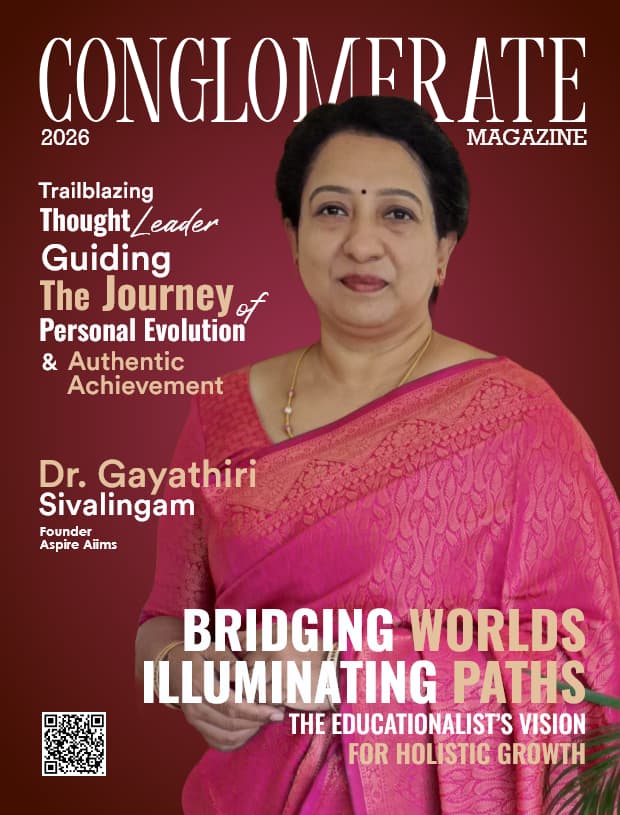In the rapidly evolving landscape of artificial intelligence, where technical prowess often overshadows human considerations, a new breed of leader is emerging. These visionaries understand that the future of AI lies not just in computational power, but in the profound integration of human consciousness, social understanding, and ethical responsibility. Mahault Albarracin stands at the forefront of this revolution, embodying a rare synthesis of technical expertise and humanistic insight that is reshaping how we conceive, develop, and deploy artificial intelligence.
Her journey represents more than a career trajectory; it exemplifies a fundamental reimagining of what AI research can and should be. Where others see distinct disciplines, she sees interconnected systems. Where traditional approaches focus on efficiency and optimization, she champions consciousness and inclusion. Her work demonstrates that the most transformative breakthroughs in AI emerge not from technical silos, but from the courageous integration of diverse fields of knowledge.
The Foundation: From Identity to Intelligence
Mahault’s intellectual journey began in an unexpected place for an AI researcher: the study of human sexuality and identity. Her Master’s degree in sexology and her bestselling book “Représentation de la fluidité: Genre et Sexualité” might seem disconnected from the world of cognitive computing, but they form the bedrock of her revolutionary approach to artificial intelligence.
“My journey began with a passion for understanding human behavior and identity,” she reflects. “I studied sexology and explored how gender fluidity is represented. At the same time, I was fascinated by intelligent systems and consciousness. I saw technology often being developed in a vacuum, maximizing efficiency or profit without regard for human context.”
This dual fascination with human complexity and artificial intelligence led to a profound realization that would shape her entire career. Her bestselling book, which dissected the portrayal of gender and sexual fluidity in media through the character Tara from “United States of Tara,” revealed critical insights about the nature of identity itself. She discovered that while individuals experience identity in fluid, dynamic ways, society often attempts to force them into rigid categorical frameworks.
“One key insight is that individuals often experience identity in a very fluid way, but society places them in a rigid matrix of expectations,” she explains. “I highlighted the importance of increasing visibility for non-binary and fluid identities, breaking out of strictly binary portrayals.”
This understanding of identity fluidity would prove prophetic in her approach to AI development. Just as human identity resists simplistic categorization, she recognized that truly intelligent systems must be capable of nuanced, contextual understanding that acknowledges the complexity of human experience.
The Synthesis: Bridging Worlds at VERSES
Today, as Director of Research Strategy and Product Integration at VERSES, Mahault occupies a unique position at the intersection of cutting-edge research and practical application. Her role transcends traditional boundaries, combining strategic vision with hands-on innovation in ways that are redefining what cognitive computing can achieve.
“At VERSES, I lead the integration of cutting-edge research into real-world AI products,” she explains. “My role combines strategy and hands-on innovation. I guide our research in cognitive computing and Active Inference and ensure it aligns with product development.”
Her daily work exemplifies the interdisciplinary approach that sets her apart. She might spend one day outlining ethical AI governance frameworks, another working with engineers to embed their Genius™ cognitive engine with new capabilities drawn from neuroscience. This seamless integration of theory and practice, of ethics and engineering, represents a new model for AI leadership.
The technical innovation she champions centers on Active Inference, a biologically inspired approach to artificial intelligence that represents a fundamental departure from current AI paradigms. Unlike traditional Large Language Models that predict text without true understanding, Active Inference systems continuously perceive, predict, and adapt to their environment in ways that more closely mirror natural intelligence.
“I helped develop an Active Inference-based architecture that enables machines to perceive, learn, and adapt in real time while explaining their decisions,” she notes. “This means future AI could have a basic ‘sense of self’ in how it learns, leading us closer to robust artificial general intelligence.”
The Vision: Consciousness and Explainability
Mahault’s vision for the future of cognitive computing extends far beyond incremental improvements to existing systems. She envisions a fundamental paradigm shift that will transform how we understand and interact with artificial intelligence over the next decade.
“I believe we’re on the cusp of an AI paradigm shift,” she predicts. “Over the next decade, cognitive computing will move beyond giant static models toward more adaptive, human-like intelligence. Unlike today’s Large Language Models that predict text without true understanding, Active Inference agents continuously perceive, predict, and adapt to their environment.”
This vision encompasses several revolutionary concepts. First, the development of AI systems with something approaching a “sense of self” – not consciousness in the human sense, but a coherent framework for understanding their own capabilities, limitations, and decision-making processes. Second, the evolution toward truly adaptive intelligence that can infer meaning independently rather than simply processing predefined patterns.
Perhaps most importantly, her vision prioritizes transparency and explainability. In an era where AI systems are increasingly criticized as “black boxes,” her work focuses on developing AI that can articulate its reasoning in human-comprehensible terms.
“We’re already pioneering AI that can explain its reasoning in human terms, and I expect that to become standard,” she emphasizes. “These cognitive AIs will be more transparent and trustworthy.”
The Challenge: Ethics in an Autonomous Age
As AI systems become more sophisticated and autonomous, Mahault has emerged as a leading voice in the critical conversation about AI ethics and governance. Her presentations at prestigious forums like the World Economic Forum and IEEE conferences have established her as a thought leader in navigating the complex societal implications of advanced AI.
Her approach to AI ethics is characteristically multifaceted, addressing challenges at multiple levels of the technological ecosystem. She advocates for what she calls “multi-layered AI governance” that encompasses three distinct but interconnected levels: actor governance (rules for AI developers and providers), agent governance (guidelines for AI systems’ own behavior), and network governance (oversight of how multiple AI systems interact).
“I often speak about the societal impact of AI,” she explains. “One major concern I raise is how AI might redistribute power in society. AI could widen the gap between the haves and have-nots if we’re not careful.”
Her work addresses fundamental questions about transparency, bias, and inclusion in AI systems. She emphasizes that without explainability, public trust in AI cannot be established, and without diverse perspectives in development, AI systems risk perpetuating and amplifying existing inequalities.
“Too many advanced AIs are ‘black boxes,’ which makes bias and unfair outcomes hard to detect,” she notes. “Without explainability, we can’t build public trust.”
The Method: Teaching Complex Concepts
One of Mahault’s distinctive strengths lies in her ability to make complex concepts accessible to diverse audiences. Her approach to education reflects the same interdisciplinary thinking that characterizes her research, using storytelling and analogy to bridge the gap between technical complexity and human understanding.
“I love demystifying abstract ideas by linking them to everyday experiences,” she explains. “One technique I use is storytelling through simple scenarios. For instance, to explain how minds (or AIs) make sense of the world, I describe affordances and scripts using a door-knocking example: a closed door ‘invites’ you to knock, someone opening it invites you to enter, and so on.”
This pedagogical approach reflects her deeper understanding that effective communication about AI requires meeting people where they are conceptually, then gently guiding them toward more sophisticated understanding. Her social science background provides crucial insight into how people learn and process information, making her uniquely effective at translating between technical and general audiences.
“My social science background helps here: it’s taught me to meet people where they are conceptually, then gently guide them into the more theoretical stuff with clarity and patience,” she notes.
The Practice: Inclusive AI Design
Mahault’s commitment to inclusion extends beyond theoretical frameworks to practical design principles that shape how AI systems are developed and deployed. Her approach to creating inclusive AI reflects her deep understanding of identity fluidity and the importance of respecting human diversity in all its forms.
“It starts with the recognition that human identity is not binary or static, and our AI shouldn’t be either,” she explains. “Practically, this means we gather diverse datasets and ensure marginalized groups are represented in the training data.”
Her methodology for inclusive AI design encompasses several key principles. First, the collection of diverse, representative datasets that reflect the full spectrum of human experience. Second, the development of systems that allow for personalization and self-identification rather than forcing users into predetermined categories. Third, the implementation of context-aware algorithms that can adapt to cultural and individual nuances.
“I advocate for algorithms that can adapt to the individual: AI should be context-aware, sensitive to cultural and gender nuances,” she emphasizes. “Respecting fluidity is about keeping AI systems open-ended. Much like how recent social shifts have made gender scripts more varied and less rigid, our AI should be able to handle nuance and evolution in user identity.”
The Impact: AI for Good in Practice
For Mahault, the concept of “AI for good” is not merely a catchphrase but a guiding principle that shapes every aspect of her work. Her commitment to using technology for positive social impact extends from her research to her entrepreneurial ventures.
“‘AI for good’ is the guiding star of my career,” she reflects. “Personally, it means developing AI in a way that genuinely benefits people and the planet. I got into this field to help solve human problems.”
This commitment manifests in concrete projects like her co-founding of Sexualis, a health tech initiative designed to improve access to sexual health services in underserved communities. The project exemplifies her approach to technology development: identifying genuine human needs and creating solutions that address them directly and effectively.
“That was Tech for good in action: using tech to address a sensitive, important human need,” she explains. “Professionally, ‘AI for good’ means I evaluate success not just by technical achievements but by positive social impact.”
Her work also extends to sustainability and environmental challenges, applying AI to address climate change and resource management. This broader perspective on AI’s potential reflects her understanding that truly transformative technology must address humanity’s greatest challenges.
The Balance: Rigor and Innovation
One of the most impressive aspects of Mahault’s work is her ability to balance scientific rigor with creative innovation. Rather than seeing these as opposing forces, she has developed an approach that allows them to reinforce each other in productive ways.
“I actually find that rigor and creativity fuel each other,” she explains. “My approach is to ground any wild idea in a solid framework. For example, when we pioneered our Active Inference-based AI architecture, the creative spark was imagining an AI with a sense of self quite an ambitious leap. But we rooted that vision in Karl Friston’s Free Energy Principle, a well-founded neuroscience theory.”
This methodology allows for ambitious thinking while maintaining scientific credibility. Her team’s breakthrough in modeling epistemic communities (echo chambers) using Active Inference exemplifies this approach. By applying cognitive science models to social phenomena, they created simulations that revealed patterns mirroring real-world social media dynamics.
“When the results came in, it was a real ‘aha!’ moment,” she recalls. “We saw patterns in the simulation that mirrored real-world social media dynamics. That breakthrough validated my hunch that blending fields can yield powerful insights.”
The Community: Advancing Women in Tech
Mahault’s commitment to inclusion extends beyond her technical work to active advocacy for women in technology. As Vice-President of the Women in Tech Manifesto (Manifeste des femmes en tech), she has worked to address the systemic barriers that women face in technology fields.
“Women in tech still encounter a range of challenges from being underestimated or outright discriminated against, to the subtle loneliness of not seeing others like you in the room,” she observes. “I’ve certainly been one of very few women at AI research meetings.”
Her approach to supporting women in tech combines practical strategies with inspirational leadership. She emphasizes the importance of building strong support networks, celebrating female role models, and creating visibility for women’s contributions to the field.
“One strategy is building strong support networks, mentorship circles, women-in-AI groups, allies who uplift your work,” she explains. “We need to celebrate and promote female role models in STEM so the next generation sees a place for themselves.”
Her advice to young women entering AI reflects her own journey and the lessons she has learned along the way. She encourages them to embrace their unique perspectives, seek out communities and mentors, and remain boldly curious in the face of challenges.
“Your perspective is needed. Don’t ever think that coming from a different background or thinking differently is a drawback,” she emphasizes. “My non-traditional path became one of my strengths. So lean into whatever makes your viewpoint unique.”
The Future: Interdisciplinary Breakthroughs Ahead
Looking toward the future, Mahault’s current projects demonstrate the continued evolution of her interdisciplinary approach. Her upcoming Ph.D. dissertation explores Active Inference as a framework for connecting cognitive processes with social dynamics, promising to further bridge the gap between individual and collective intelligence.
“I’m in the final stretch of my Ph.D., which means I’ll soon publish my dissertation. It dives into active inference as a framework to connect cognitive processes with social dynamics,” she explains.
Her collaborative projects span multiple domains, from sustainability and resilience challenges to social power dynamics and organizational psychology. Each project represents an opportunity to apply her interdisciplinary methodology to new challenges, creating solutions that would be impossible within traditional disciplinary boundaries.
“Another project in progress delves into social power dynamics and AI: essentially bridging organizational psychology with cognitive computing to model how power structures could be made more equitable,” she notes.
The Legacy: Transforming AI Through Human Understanding
As Mahault continues to push the boundaries of what’s possible at the intersection of technology and humanity, her work represents a fundamental shift in how we approach artificial intelligence. Her career demonstrates that the most transformative innovations emerge not from technical prowess alone, but from the courage to integrate diverse perspectives and the wisdom to center human values in technological development.
Her vision of AI systems that are not only more intelligent but also more conscious, transparent, and inclusive offers a roadmap for the future of artificial intelligence. By grounding cutting-edge research in deep understanding of human experience, she is helping to create AI that serves not just efficiency and profit, but human flourishing and social justice.
“I realized that insights from social sciences could inform more conscious, human-centric AI,” she reflects. “I felt compelled to ensure that as AI evolves, it includes diverse perspectives and respects human values. I’m driven by the hope that technology, designed with awareness and inclusion, can elevate human potential and help create a more equitable, conscious society.”
In an era where artificial intelligence is reshaping every aspect of human experience, leaders like Mahault Albarracin provide essential guidance for navigating this transformation responsibly and effectively. Her work reminds us that the future of AI lies not in choosing between human and artificial intelligence, but in creating systems that honor the complexity, diversity, and dignity of human experience while unlocking the transformative potential of artificial intelligence.
The interdisciplinary revolution she represents is not just changing how we build AI systems; it’s changing how we understand intelligence itself. By bridging the worlds of technology and humanity, she is helping to create a future where artificial intelligence serves not as a replacement for human intelligence, but as its most powerful amplifier and ally.







